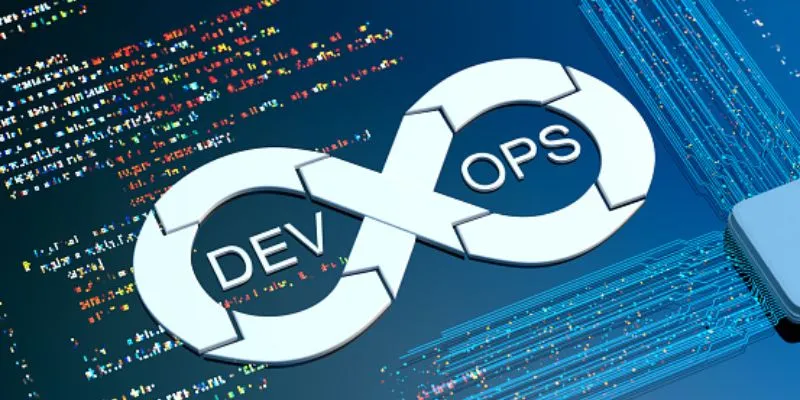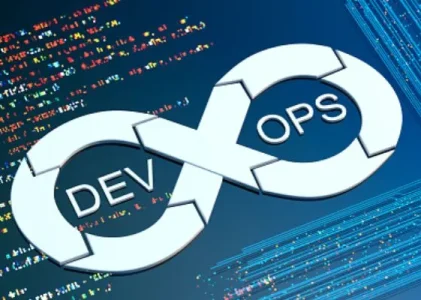In today’s rapidly evolving technological landscapes, cloud computing has become a cornerstone for businesses aiming to enhance agility, scalability, and efficiency. Parallel to this, DevOps has emerged as a transformative approach that bridges the gap between software developments and IT operations, enabling continuous delivery and automation. When combined, DevOps and cloud computing create a powerful synergy that drives innovation and operational excellence. This blog delves into the role of DevOps in cloud computing, exploring how these two paradigms complement each other to revolutionize the way organizations develop, deploy, and manage applications. Are you looking to advance your career in Devops? Get started today with the DevOps Training in Chennai from FITA Academy!
Role of DevOps in Cloud Computing
The Intersection of DevOps and Cloud Computing
Cloud computing offers on-demand access to computings resources, such as servers, storage, and databases, over the internet. It enables organizations to scales resources up or down based on demand, reducing the need for costly and complex infrastructure management. On the other hand, DevOps focuses on automating the software development process, fostering collaboration between development and operations teams, and ensuring faster and more reliable software delivery.
The intersection of DevOps and cloud computing lies in their shared goals of agility, efficiency, and scalability. DevOps Training in Bangalore equips professionals with the skills needed to implement DevOps practices, such as continuous integration and continuous deployment (CI/CD), which are well-suited to cloud environments where infrastructure can be provisioned and scaled dynamically. This synergy allows organizations to accelerate the development and deployment of applications while maintaining high levels of quality and security.
Automation and Scalability in the Cloud
One of the key roles of DevOps in cloud computing is automation. DevOps practices rely heavily on automation to streamline repetitive tasks, such as testing, deployment, and monitoring. In a cloud environment, automation is further enhanced by the ability to script and automate infrastructure provisioning using Infrastructure as Code (IaC) tools like Terraform and AWS CloudFormation.
This automation enables organizations to achieve rapid scalability. For example, when an application experiences a sudden surge in traffic, cloud resources can be automatically scaled up to handle the increased load, ensuring uninterrupted service. Conversely, when demand decreases, resources can be scaled down, optimizing costs. This level of automation and scalability is essential for organizations operating in dynamic markets where agility is key to staying competitive. Understanding AWS Identity and Access Management is also crucial in this process, as it helps manage permissions and secure access to cloud resources efficiently.
Continuous Integration and Continuous Deployment (CI/CD)
CI/CD is a cornerstone of DevOps practices, and its role in cloud computing cannot be overstated. Continuous integration involves automatically integrating code changes into a shared repository multiples times a day, ensuring that the code is always in a deployable state. Continuous deployment takes this a step furthers by automatically deploying the integrated code to production environments.
In a cloud environment, CI/CD pipelines can be seamlessly integrated with cloud-based services, such as AWS CodePipeline, Azure DevOps, and Google Cloud Build. This integration allows organizations to automates the entire software delivery process, from code commits to production deployment, with minimal human intervention. The result is faster release cycles, reduced deployment risks, and the ability to deliver new features and updates to customers more frequently. Learn all the Devops techniques and become a devops developer. Enroll in our Devops Online Course.
Enhanced Collaboration and Communication
DevOps is not just about tools and automations; it’s also about fostering a culture of collaboration and communication between development and operations teams. In a cloud environment, this collaboration is further enhanced by the shared responsibility model, where both development and operations teams work together to manage cloud resources and make sure the smooth operation of applications.
Cloud platforms provide collaborative tools, such as shared dashboards, real-time monitoring, and integrated communication channels, that enable teams to work more effectively together. This collaboration leads to faster identification and resolution of issues, improved quality of software releases, and a more cohesive approach to managing infrastructure and applications. Enrolling in DevOps Training in Marathahalli can help professionals gain hands-on experience with these cloud-based collaboration tools and streamline DevOps processes efficiently.
Security and Compliance in the Cloud
Security is a critical concern in both DevOps and cloud computing. The role of DevOps in cloud computing extends to incorporating security practices into the development process, often referred to as DevSecOps. In a cloud environment, security can be automated through the use of security-as-code practices, where security policies and configurations are defined and enforced through code.
Cloud providers also offer a range of security services, such as encryption, identity and access management, and automated threat detection, that can be integrated into DevOps pipelines. By embedding security into The Process Of DevOps, organizations can ensure that security is not an afterthought but a fundamental part of the development lifecycle.
The integration of DevOps and cloud computing has transformed the way organizations build, deploy, and manage applications. By leveraging automation, scalability, CI/CD, collaboration, and security practices, DevOps plays a pivotal role in maximizing the benefits of cloud computing. As businesses continue to embraces digital transformation, the synergy between DevOps and cloud computing will be instrumental in driving innovation, improving operational efficiency, and delivering value to customers. Organizations that successfully harness this synergy will be well-positioneds to thrive in the competitive landscapes of the future. Looking for a career as a devops developer? Enroll in this Advanced Training Institute in Chennai and learn from experts about devops testing techniques and tools.
Read more: DevOps Interview Questions and Answers
Comments
0 comments

